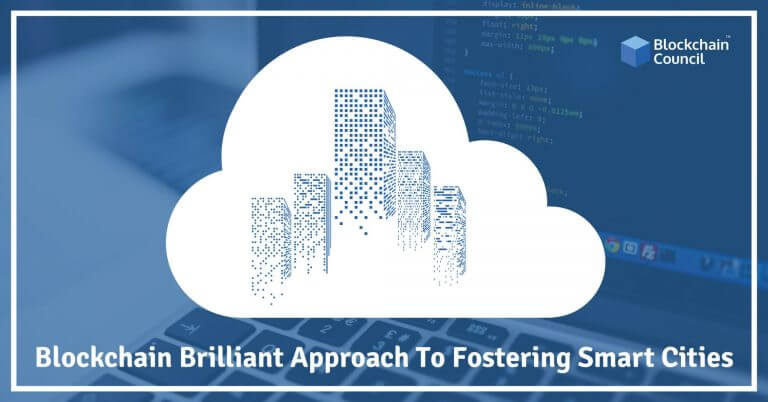
- Toshendra Kumar Sharma
- April 08, 2020
Want to become a Certified Ethereum Expert? You have landed on the right page. The article provides a comprehensive guide on Ethereum RPCs, detailing its methods, functions, and everything you are looking for.
Learning Of Blog
- What is Ethereum JSON RPC?
- Explaining RPC methods
- ERC20- A Detailed Overview
- Conclusion
What is Ethereum JSON RPC?
JSON is a stateless, lightweight data-interchange format that can represent numbers, ordered sequences of values, and collections of value pairs.
JSON-RPC is nothing but a remote procedure call protocol that defines various data structures and the rules around their processing. It is transport agnostic as the concepts can be used within the same process, over sockets, over HTTP, or in other message passing environments. It uses JSON (RFC 4627) as a data format.
Now, let’s have a look at what all JSON-RPC supports
| cpp-ethereum | go-ethereum | |
| JSON-RPC 1.0 | Yes | |
| JSON-RPC 2.0 | Yes | Yes |
| Batch requests | Yes | yes |
| HTTP | Yes | Yes |
Let’s throw some light on the terms CPP Ethereum and Go Ethereum.
CPP- Ethereum
It is the third popular of the Ethereum clients; the other two are geth, the go client and parity, the rust client. It is exceptionally portable and has been used successfully on an extensive range of operating systems and hardware.
Go Ethereum
Along with C++ and Python, Go Ethereum is one of the three original implementations of the Ethereum protocol written in Go. It is a fully open-source and licensed under the GNU LGPL v3. It is available either as a standalone client (known as Geth) that can be installed on any OS or as a library that you can embed in your Go, Android, or iOS projects.
Precisely, Geth is a program that serves as a node for the Ethereum blockchain through which a user can mine Ether and create software that runs on the Ethereum Virtual Machine(EVM).
Want to investigate more about Ethereum? Check out Ethereum certification and become a Certified Ethereum Expert?
Explaining RPC Methods
Ethereum JSON-RPC APIs use a namespace system. RPC methods are clustered into several categories, depending on their usage. All method names are composed of the namespace, an underscore, and the actual method name within the namespace. For example, the eth_call method resides in the eth namespace.
Basically, what function we ask an Ethereum node to execute is a method. It will request data either from the node, execute an EVM function and return a response, or transmit data to the Ethereum network.
At present, there are 65 methods in total, which are supported by popular Ethereum clients. Here we are listing the categories of methods.
1. Block Data Related
These types of methods retrieve static data about a particular block in the blockchain where data is contained in the blockchain headers and include information such as block number or transactions mined, etc.
- eth_getBlockByHash: This method retrieves a block’s details by its hash.
- eth_blockNumber: This retrieves the current block number.
- eth_getBlockByNumber: It retrieves a block’s details by number.
2. Per-User (address) Data
This method retrieves the simple state data for addresses regardless of whether that address is a user or a smart contract. Any address can have an ETH balance.
- eth_getTransactionCount: This method retrieves the nonce of an address, i.e., how many transactions have already been mined, per user, for that address.
3. Reading Existing Smart Contract Data
There are various methods used for interacting with smart contracts. Here is a list of a few of them.
- eth_getStorageAt: retrieves raw state storage for a smart contract.
- eth_call: retrieves a constant EVM method on a Smart Contract and is the primary way to retrieve already mined data from the blockchain about a particular smart contract.
Other methods such as eth_getLogs, eth_getCode can also be used to interact with smart contracts.
ERC20- A Detailed Overview
ERC20 was the first popular specification to offer Ethereum token standardization, whose tokens are simple and easy to deploy. It is the universal language that all tokens on the Ethereum network use and allows one token to be traded with another. The most popular cryptocurrency and blockchain system (known as Ethereum) is based on a simple token standard, which can be bought, sold, or traded.
Within this standard, an ERC20 (Ethereum Request for Comments) token implements the following functions-
- function totalSupply() -public constant returns (uint);- This function identifies the total number of ERC-20 tokens created.
- function transfer(address to, uint tokens)-public returns (bool success);- It function allows a number of tokens to be transferred from the total supply to a user account.
- function balanceOf(address tokenOwner) -public constant returns (uint balance);- It returns the number of tokens a given address has in its account.
- function transferFrom(address from, address to, token uint)- public returns (bool success);- It is a function that allows a user to transfer tokens to another user.
- function allowance(address tokenOwner, address spender)- public constant returns (uint remaining)- It checks for the minimum balance of the user to perform the transaction.
- function approve(address spender, uint tokens)- public returns (bool success); It checks a transaction against the total supply of tokens.
While the above mentioned are the mandatory rules, on the other hand, the optional rules are token name, symbol, and decimal (up to 18).
With a universal standard like ERC20, new tokens can be put on an exchange or transferred to a wallet automatically, once it’s been created. It also makes the creation of new tokens extremely easy, and this the reason is why Ethereum has become the most popular platform.
Conclusion
This was all about Ethereum RPCs, methods, and call. Want to investigate more about Ethereum?
If you wish to be an ethereum developer or a smart contract developer, look no further. Blockchain Council, one of the prestigious platform, offers ethereum certifications and training courses to make you industry-ready.
To learn more about Ethereum certifications and become an Ethereum expert, check out Blockchain Council.
































































 Guides
Guides News
News Blockchain
Blockchain Cryptocurrency
& Digital Assets
Cryptocurrency
& Digital Assets Web3
Web3 Metaverse & NFTs
Metaverse & NFTs
